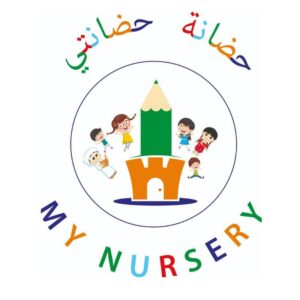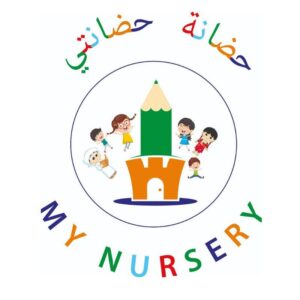The Nursery prides itself on the partnership it has with parents. The Nursery will actively seek the involvement of parents in the education of their children. It is recognized that it is particularly important for students who have learning support needs, including those who are gifted and talented, to have the support and encouragement of parents so that they can achieve success. The Nursery considers parents as partners in the student’s learning and encourages parents to view themselves as such. The Inclusion team and the responsible person is always available to meet with parents to discuss their child. Parents will be fully informed and consulted regarding strategies that have worked in nursery and can be used at home.
Identification, Assessment and Referral process We use a range of strategies to identify gifted and talented children. The identification process is ongoing, and begins when the child joins our Nursery. For some children we have pre-record from the parents which give details of achievements and talents in particular areas. Discussions with parents and careers enable us to add further details to these records. All children undergo assessments. This gives information about their developing skills and aptitudes across several areas of learning.
We discuss each child’s profile with the parent, TEACHER’S ASSESSMENT ASSESSMENT FORMS SET THE TARGETS REVIEW THE TARGETS SUPPORT PROVIDED and use this information when planning for individual needs. As the children progress through the nursery, we assess them regularly to ensure that they are making the sort of progress that we are expecting of them in their personal targets. The student is assessed in all the areas and performance is recorded. Each teacher regularly reviews the children’s progress and records the data. Teachers discuss the children’s progress with parents at consultation meetings (PTM and report on each child’s progress throughout the year
- Standardized assessment of cognitive development and ability that can only be administered by a psychologist (if required) Identification of students who are gifted and talented is not a straightforward process. All available material and the results of the above mentioned are critically analyzed to ensure proper assessment and choosing a student to be nominated as a gifted and talented child. THE TEACHERWILL FIRST OBERSERV THE CHILD FOR 2 WEEEKS. IF THE CHILD SUSPECT TO BE TALENTED THAN THE MANAGEMENT WILL ASK THE PARENTS TO MAKE A DOCTOR ASSEMENT TO SEE, THIS REPORT MUST BE SUMBITED LATER ON AT THE NURSERY TO ENSURE THE CHILD PROGRESS AND DEVELOPMENT FUTRTER.
A list of students who are gifted and/or talented will be shared with the teachers to track the process of screening and provisions. This list is always a working document and students can be added to it – or withdrawn from it – following appropriate evidence. Teachers will have access to documentation such as check-lists that will help with the identification of students they may consider gifted and talented. Ongoing teacher assessment will monitor progress of gifted and talented students.
The Gifted and Talented Coordinator along with the Inclusion team will review progress of all children and keep the records updated. Provision, curriculum access and modification / inclusion Teaching and learning support for G&T The identification of students with special gifts and talents is not be viewed as an isolated activity. It is the essential first stage of a continuum of provision where the NURSERY provides appropriate and personalized learning program to enable all gifted students to become talented. The following are key aspects of how our education programs are personalized for students with special gifts and /or talents.
Differentiation – An effectively modified curriculum meets the needs of students with a range of learning styles and ability levels. A modified and differentiated curriculum is essential for gifted and talented learners whose potential is unlikely to develop without special educational provisions.
Pace – It is likely that gifted and talented students will learn at a faster pace. They may understand new concepts more easily and with fewer repetitions. Consequently teachers will need to provide appropriate challenge to sustain the students’ attention and desire to learn.
Assessment – Assessment is an important, ongoing diagnostic tool for matching curriculum delivery to students’ needs. Pre-assessment allows teachers to determine what students already know, so that a more challenging learning program can be provided.
Groupings – Students with special gifts and talents can benefit from flexible grouping within the classroom where they can work individually or with other students.
Level of work – Gifted and talented students generally understand concepts and ideas at a level which is above usual age-related expectations. Therefore the curriculum needs to be concept based and include complex, abstract ideas so that interests and abilities are challenged and extended.
Enrichment – It is expected that the vast majority of gifted and talented learners will be taught in mainstream classes as part of a differentiated curriculum. Provisions for gifted and talented learners need to include opportunities for enrichment, extension and acceleration within and beyond the classroom. Teachers plan carefully to meet the learning needs of all our children. We give all children the opportunity to show what they know, understand and can do, and we achieve this in a variety of ways when planning for children’s learning, by providing:
-Common activity that allows the children to respond at their own levels
-An enrichment activity that broadens a child’s learning in a particular skill or knowledge area
-An individual activity within a common theme that reflects a greater depth of understanding and higher level of attainment
-The opportunity for children to progress through their work at their own rate of learning.
-Inclusion department plays its role in managing the gifted and talented students in various ways.
-Monitoring teachers’ planning to ensure that suitable tasks and activities are being undertaken across all curriculum areas by the higher achievers.
– Regularly reviewing the teaching arrangements for these particular children, by monitoring their progress through termly discussions with teachers and data analysis.
-Supporting staff in the identification of these children and on teaching and learning strategies.

